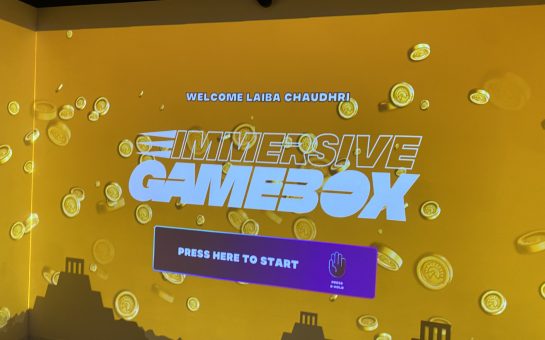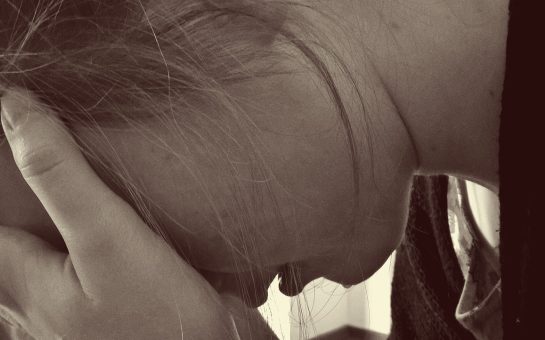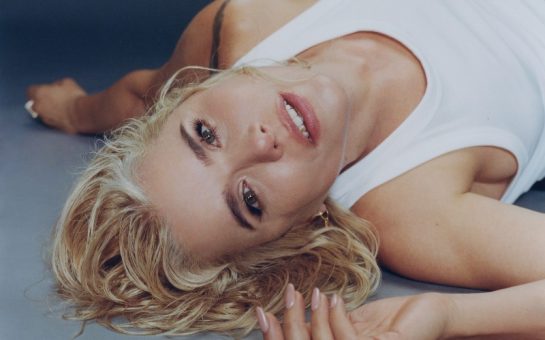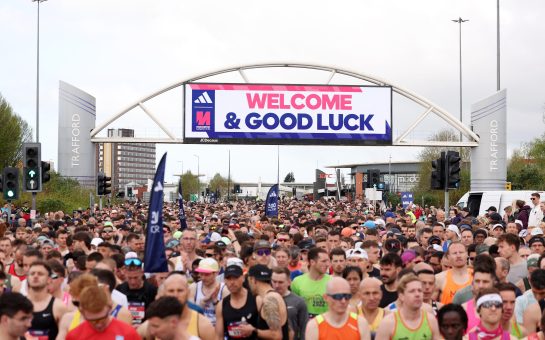The debut feature-length documentary from Libyan/British director Naziha Arebi is a beautifully shot and incredibly moving portrait of a country torn apart by war, and everyone should see it.
Released to coincide with the start of the Women’s World Cup, filmed over five years in post-revolution Libya, FREEDOM FIELDS follows three women and their football team as the country descends into civil war.
The documentary provides an alternative narrative for Libya. Arebi shows us the people we do not see on the news. She has created an intimate and beautiful portrayal of the lives of the women and the country that is falling apart around them.
MM got the opportunity to have a chat with director Naziha Arebi before the film’s preview at HOME.
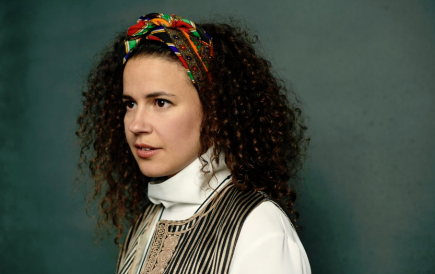
MM: Why did you decide to make the film?
So, for me it’s not really a film about football, but it can be of course. It’s about how within this group of women you find so many different parts of Libyan society. They are from so many different backgrounds and sport can be a really amazing, unifying thing.
I’m half Libyan and half British, I went back during the revolution and ended up staying there. When I met these women I thought they are so much fun to be around, really determined and inspiring.
That’s why I set out to make it but I didn’t realise I would be making it for so long, that I would be sitting here seven years later.
MM: How did you meet the team?
I had heard about them in the UK, they were this team that people hadn’t seen play, but that people knew existed and so I wanted to hunt down this mysterious team.
I was going from one place to another and literally met them on the pitch and we started hanging out. The connection got close quite quickly.
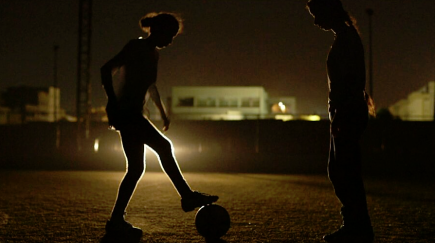
MM: Did the film end up how you expected?
The film is very different to what I set out with, but it has the same core. That’s the beauty of documentary, you don’t know the direction life is going to take.
We didn’t know what direction the country would take, I didn’t know how they would change or how I would change, that’s the magic of documentary really. I’m really proud of the final film and all the amazing people working on it.
MM: What was the reaction of the women when they saw the finished film?
It was amazing. Nine of them came to Amsterdam to a film festival. They wanted to watch it first in the cinema, with the audience, by the end people definitely knew they were there!
They laughed a lot at the things that were funny and they cried a lot. At the end they were doing lots of whooping and clapping. There’s always that fear that you don’t know if the people in it are going to like it, they trust you so much.
MM: How was being a filmmaker in Libya at the time?
There were challenges for everyone. I think initially it was a very hopeful time, there were a lot of people filming and it was much easier. But when it descended into chaos it got a lot more difficult to film in the public spaces.
We found ways round things and there were always people that wanted to help. I was really lucky to have a great team around me and I had some great Libyans working with me on the ground.
The women in the film were really welcoming. They would make fun of me for being Libyan, and not really that Libyan, they would want to make me more Libyan. It wasn’t the easiest film to make bearing in mind it was my first feature film, it was definitely a wonderful experience, but challenging.
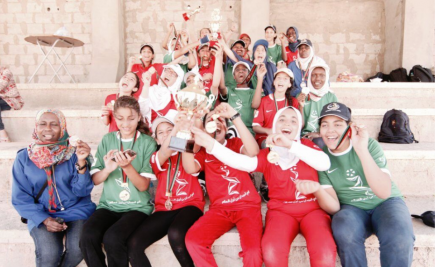
MM: You describe the women as “accidental activists”, is this something they were when you met them or is it something they became?
No, at the beginning they didn’t realise the power they had. You see them over time grow up but also recognise their own power and use that. They are really from the grass roots, they are doing what they can from where they are, and that’s really important.
It’s important not to just highlight activists that are perfect and are from a certain level of society. It’s really important that we all take a small bit of this activism and community spirit into our lives and so, for me, I wanted to show a really human side to some of those movements. And so you see that as they grow up.
MM: What would you like audiences to take away from the film?
People can take away what they want, but I would like people to be inspired by them in the same way that I was inspired. But I would also like people to see a different version of a place like Libya.
People get so used to seeing images of war and yet there’s real people living behind those that are just trying to live. I really want people to take away a more humanised, less sensationalised vision of a place like Libya. But also be inspired by these kick ass women who are doing amazing things despite the circumstances around them.
MM: What are they doing now?
Now there is a national team who played their first match in 2018, but these women have left the national team and they have set up their own NGO using sport as a tool for social development.
They work in schools and refugee camps, orphanages and actually are really helping other women and young people to harness the power of sport and use what it did to them and help other people find that.
Sport can be a really powerful non-elitist tool to help people navigate trauma, reconciliation, gender issues, violence, it can be a great tool for channeling many things.
*FREEDOM FIELDS is showing at HOME, Manchester until Wednesday, June 5. You can buy tickets HERE.
